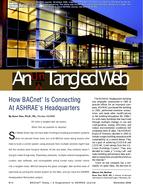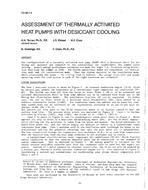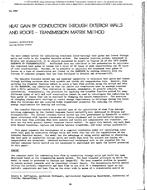Chilled-water cooling coils are important components in air-handling systems. Generally, the cooling coil removes both moisture and sensible heat from entering air. Because the sensible and latent heat transfer modes are coupled and the saturation humidity ratio vs. temperature curve on the psychrometric chart is nonlinear, it is very difficult to solve cooling coil heat transfer differential equations across the entire coil. However, the sensible and latent heat transfer modes can be decoupled using a constant sensible heat ratio (SHR), and the saturation humidity ratio vs. temperature curve can be treated as linear in a small area corresponding to a finite element of the coil. Then element equations can be easily deduced from decoupled sensible and latent heat transfer differential equations using the effectiveness-NTU method. This paper presents the decoupled cooling coil model using the finite element method with applications to simulation of particular cooling coil cases.
Units: SI
Citation: ASHRAE Transactions, Vol. 113, pt 1, Dallas 2007
Product Details
- Published:
- 2007
- Number of Pages:
- 10
- File Size:
- 1 file , 920 KB
- Product Code(s):
- D-DA-07-053


